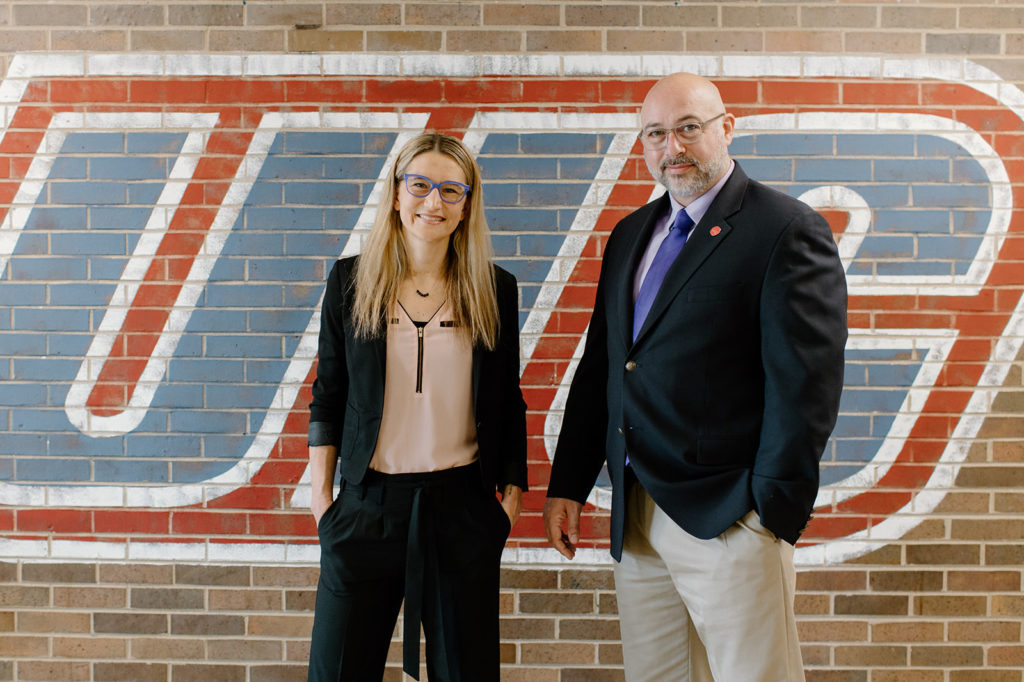Resilient Athlete Program helps injured athletes recover in mind and body
Text

The Resilient Athlete Program, possibly the only one of its kind in the nation, combines research-based treatment in sports psychology and sports injury to help injured athletes recover in mind and body.
“We partner with athletes to help them develop mental skills as they navigate their injury,” said KINES clinical professor Karrie Hamstra-Wright, cofounder of the program with KINES clinical professor John Coumbe-Lilley.
Hamstra-Wright’s research focuses on prevention and treatment of lower extremity injury, while Coumbe-Lilley’s work concerns emotional recovery after severe or catastrophic sports injuries. About three years ago they established the ASPIRE (Applied Sports Psychology and Injury Research and Education) Laboratory, which offers hands-on learning and research experience to undergrad and graduate students. In fall 2022, they launched the Resilient Athlete Program, which provides one-on-one support and consulting at no charge to athletes of all ages.
“We think of resilience as the ability to bounce back, regardless of what the return to sport looks like—a full return, return in a different way, not returning, return to a new sport,” Hamstra-Wright said.
In addition to Coumbe-Lilley and Hamstra-Wright, the staff includes graduate students in performance, sports and exercise psychology, a concentration in the kinesiology master’s program.
The athletes, who range in age from teens to 70s, include competitive runners, wrestlers, baseball and softball players, swimmers and power lifters. Some are UIC athletes; others come from all over the country, Canada and Mexico.
Besides the sport they love, injured athletes can lose their social community, their daily routine and their primary means of stress management.
In the Resilient Athlete Program, they meet with consultants three to six times in 30- to 60-minute sessions, either in person or online.
The interventions might include fear-based movement training, goal setting, biofeedback, imagery and visualization, self-talk strategies, simulation training, stress management and writing activities, Hamstra-Wright explained.
“We help them develop the mental skills that support wherever they are in their injury process.”
Resilient Athlete Program services are free. Complete an intake form online or contact the staff at aspire@uic.edu or 312-996-0152.